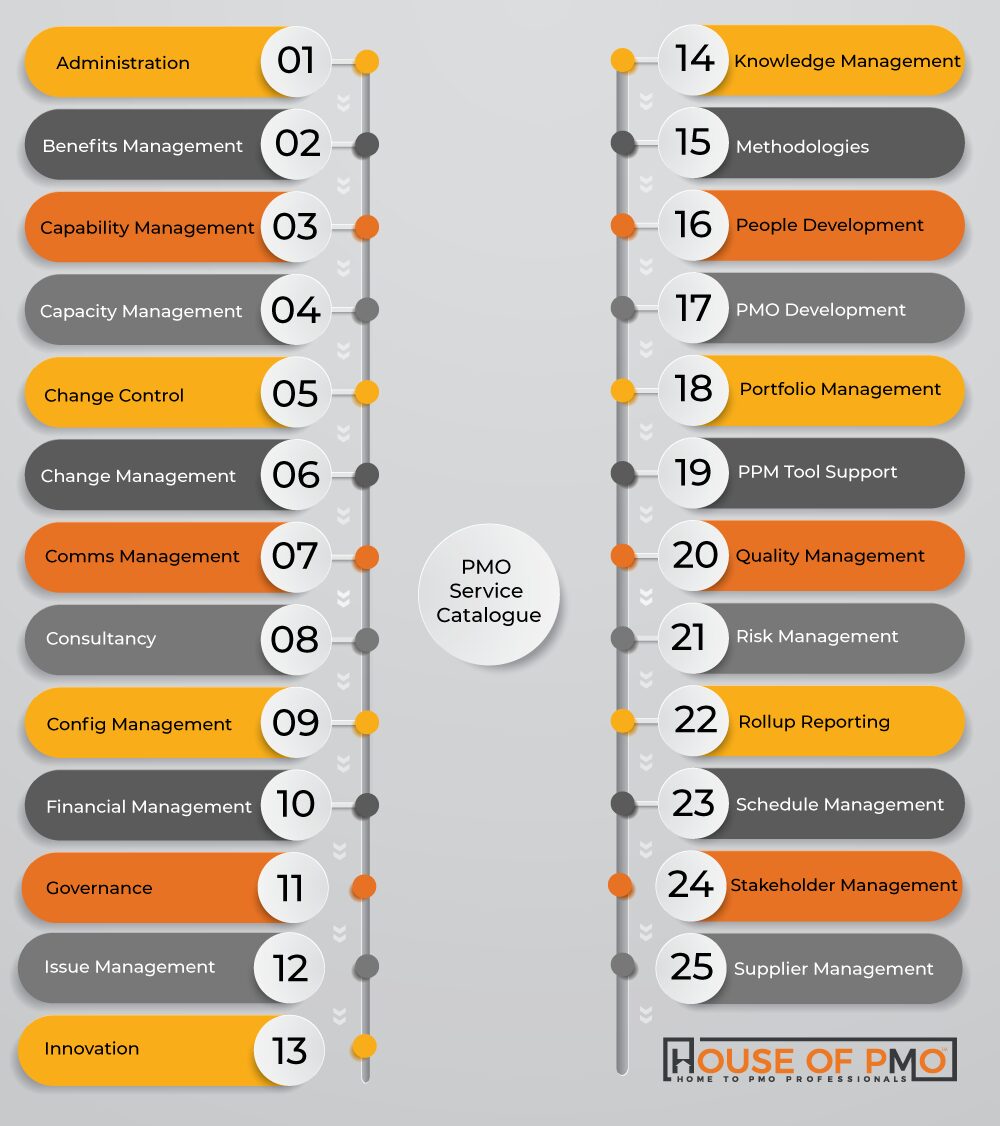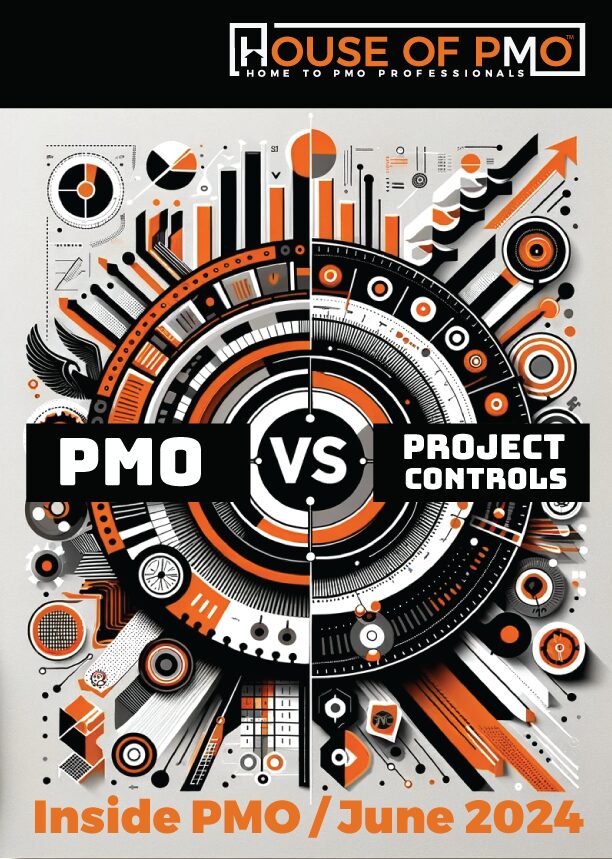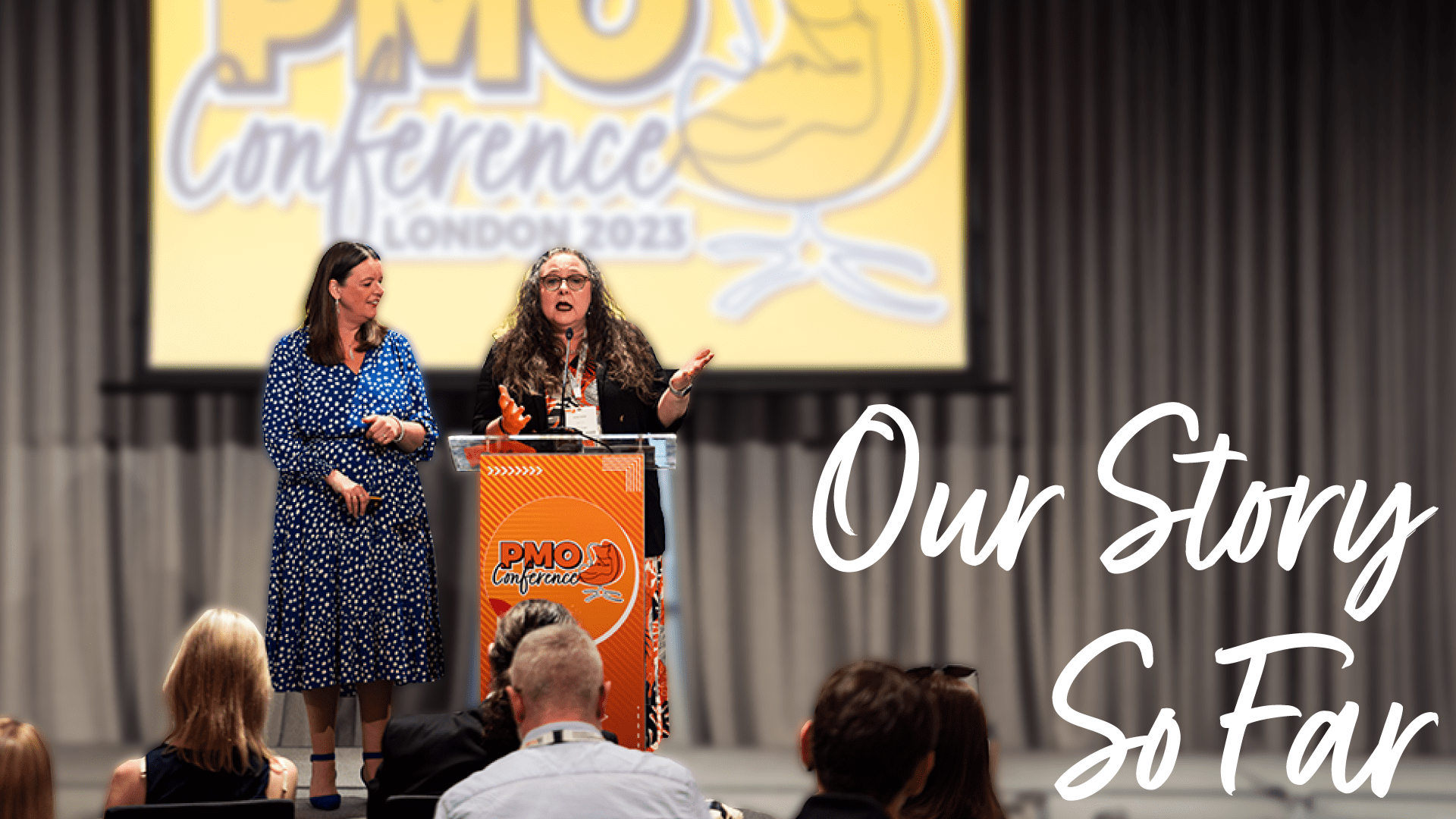What is a PMO?
Discover what a PMO is, what it does,
and the people who make it happen
From a PMO of One to enterprise-wide teams, PMOs come in all shapes and sizes.
Whatever the setup, they’re here to help organisations deliver change more effectively
No Single Definition of PMO
At its simplest, a PMO helps organisations deliver change. But the way that looks in practice varies hugely – and that’s what makes the world of PMO so interesting.
Despite the increasing number of PMOs in industry today, there is still no universally agreed definition for a PMO.
Our Approach at House of PMO
Here at the House of PMO, we use the term PMO, not as an acronym, but as a collective noun to represent any individual, team, department or division that supports project, programme and portfolio management.
House of PMO
Here at the House of PMO, we use the term PMO, not as an acronym, but as a collective noun to represent any individual, team, department or division that supports project, programme and portfolio management.
Different Shapes and Sizes
PMOs come in all shapes and sizes.
Some are embedded within a single project or programme; others span entire portfolios or operate across the whole organisation. In some cases, there’s just one PMO – in others, there are multiple offices, either closely connected or working independently.
Some are formally structured and embedded in governance; others are more informal or tactical. And when it comes to size, we see everything from the POO (PMO of One) and POT (PMO of Two), right through to large, multi-functional teams supporting enterprise-wide change.
The range of work covered can span everything from hands-on delivery support to strategic portfolio oversight, from governance and assurance to data analysis, benefits, resource and change.
By using “PMO” as a collective term, we create space for all of that variety – so that anyone supporting project, programme or portfolio delivery can see themselves as part of the PMO profession.
Why Inclusivity Matters
This inclusive approach is important. It helps us build a shared understanding of what PMOs do, and why they matter. It allows for better education and development across the field. And it supports the ongoing progression of PMO as both an industry and a recognised profession.
It’s simple, it’s flexible, and it reflects the reality of how PMO is practiced today.





What Does a PMO Do?
The Purpose of a PMO
PMOs exist to support the successful delivery of projects, programmes and portfolios – and ultimately, the organisation’s strategy. The variety of work is vast, but the purpose is shared.
Different Focus, Shared Goal
Each PMO has a different focus: some set standards and support governance; others offer hands-on help with planning, reporting, risk, benefits and resources. Some focus on strategy, others on delivery. But whatever the focus, a PMO provides services that help the organisation succeed.
The PMO Service Catalogue
The PMO Service Catalogue offers insight into the wide range of services PMOs provide – and why they matter.
Our PMO Service Catalogue sets out 25 key service areas – from governance, reporting, and risk management, to capability development, resource planning and benefits realisation. It’s a practical guide for PMO professionals and organisations alike, showing the breadth of value a PMO can provide

Helping Change Happen
At its heart, a PMO helps to make change happen more effectively. That means better outcomes, fewer surprises, and greater confidence that investments in change are being well spent.
Whether it’s shaping the right portfolio, guiding the delivery of complex programmes, or supporting project teams day to day, PMOs bring structure, consistency and clarity – all of which help improve decision-making, reduce risk, and enable success.
Connecting Strategy and Delivery
PMOs also act as ‘boundary spanners’ – connecting strategy with delivery; aligning people, process and data; and ensuring lessons, insights and good practice are shared and applied.
They add value not only through the services they provide, but through the broader visibility, cohesion and accountability they create.
Why PMOs Matter
That’s why the work of the PMO matters. In times of uncertainty, it brings stability. In times of ambition, it brings pace and focus. And in organisations of all shapes and sizes, it plays a vital role in enabling change that delivers real, lasting benefit.
That’s also why we’re updating the PMO Service Catalogue. As the profession evolves, so too do the services PMOs provide. The new version will reflect today’s reality – offering a common language and shared understanding, while making space for innovation and the unique flavour each PMO brings.
Because when PMOs are clear on what they do – and why it matters – they’re better equipped to deliver real value. And that’s what the House of PMO is all about.

Who Works in a PMO?
PMOs are powered by people – and like PMOs themselves, those people come in many shapes and sizes. Across organisations, sectors and maturity levels, PMO roles vary widely. Some are strategic, others operational. Some are permanent, others project-based. Some are early steps into a career in change – others are board-level roles shaping enterprise-wide portfolios.
At the House of PMO, we recognise and celebrate this variety. Whether you’re part of a multi-functional PMO team, a POO (PMO of One), or contributing specialist skills like planning or cost control, you’re part of the PMO profession.
The Four Generic Roles
The PMO Competency Framework defines four core, generic PMO roles — each representing a distinct stage in a professional PMO career. These roles are relevant regardless of the type of PMO or the industry in which it operates.
PMO Administrator
Often the starting point for those entering the PMO profession. This role supports day-to-day project operations — managing documentation, organising meetings, taking minutes, coordinating updates, and helping teams stay on track. It’s a vital role in keeping things running smoothly.
PMO Analyst
The engine room of the PMO – focused on turning data into insight, the PMO Analyst role supports decision-making by managing reporting, tracking performance, monitoring risks and issues, and coordinating across delivery teams. Strong analytical and communication skills are key.
PMO Manager
Leading the PMO team and accountable for the services it delivers – from planning and risk to financials, reporting, and assurance. Often the key link between delivery teams and senior stakeholders. They’re central to ensuring delivery is controlled and consistent.
PMO Director
A senior leader operating at strategic level, often with board-level engagement. This role shapes delivery capability across the organisation – aligning portfolio priorities with business goals, overseeing investment governance, and building enterprise-wide change confidence.
Specialist Roles Within the PMO
Although many PMO people work in generic roles, there are just as many who work as Specialists. These roles bring deep expertise in key areas that support the successful delivery of change. Examples include:
- Business Analysts – translating business needs into actionable requirements and supporting benefits realisation
- Planning and Scheduling Specialists – developing and managing delivery plans, milestones and timelines
- Risk and Assurance Leads – coordinating risk registers, compliance activity and project health checks
- Finance and Cost Controllers – monitoring budgets, tracking forecasts and supporting portfolio investment planning
- Tools and Systems Experts – managing PPM software and ensuring effective use across the organisation
- Portfolio Analysts – evaluating portfolio performance and supporting prioritisation
- Coaches, Trainers and Change Leads – helping teams develop capability and adopt new ways of working
We also recognise that many professionals working in project controls – including planners, cost engineers, risk analysts, estimators, document controllers and BIM coordinators – may not always identify as being part of the PMO. But in reality, their work is often deeply integrated into the project, programme and portfolio environment.
These specialist roles play a vital part in delivery success and should be recognised as part of the broader PMO profession.
This diversity of roles shows there’s no single path into PMO – or out of it. Whether you bring analytical skills, leadership experience, or technical expertise, there’s a place for you in the profession. And as projects and portfolios evolve, so too do the opportunities for PMO specialists.

A Professional Pathway
There’s often a perception that PMO roles are just a stepping stone into project management. And while they can be, they’re also a profession in their own right — with a well-defined career path that spans from coordination and analysis through to strategic leadership.
Our PMO Competency Framework helps make that clear. It defines the knowledge, skills and behaviours needed across a range of PMO roles — helping individuals assess where they are now, and where they might go next. It supports personal growth, professional development, and team capability — and it’s grounded in the reality of PMO work today.
Position Matters
To be truly effective, the PMO needs more than just good people – it needs the right position in the organisation. PMOs deliver the most value when they operate with clear purpose, strategic scope, and access to senior decision-makers. The closer the PMO is to the top table, the more impact it can have.
Because ultimately, the people in a PMO aren’t just administrators or data handlers. They’re enablers of change. They bring insight, rigour, and clarity. They make things happen – and help others do the same.
And wherever they sit, whatever their title, and however they contribute – if they support project, programme or portfolio delivery, they are part of the PMO profession.
Ready to Join Your Professional Association?
Wherever you are in your PMO career, you’re part of this growing profession. Join the House of PMO to connect with others, build your capability, and shape the future of PMO together
Become a member of the House of PMO today, explore the different membership options here.




